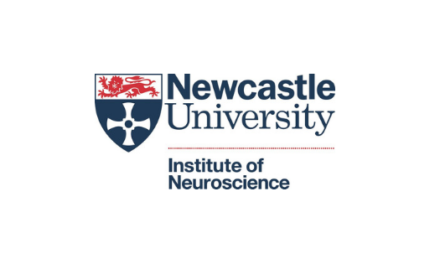The College of Health Solutions at Arizona State University (ASU) is seeking a full-time, 9-month, tenured faculty member at the rank of full professor in the area of human neuroscience.
This position will be directly involved in the college’s Grand Challenges, which are some of the most complex and difficult health challenges facing Arizona. Each Grand Challenge is huge in scope and requires translational research, transformative collaboration and innovation. The college’s Grand Challenges are the following: promoting healthy lifestyles, improving mental health, and reducing barriers to health and health care. We are particularly interested in making an impact on populations with significant health disparities, such as veterans and people experiencing homelessness.
Faculty must work collaboratively across disciplinary boundaries in the area of physical and cognitive health with research that is related to at least one of college’s Grand Challenges. The candidate should be able to teach courses related to human neuroscience across disciplines. We seek a researcher interested in working with colleagues within the College of Health Solutions in the academic program areas of Behavioral Health, Biomedical Informatics and Biomedical Diagnostics, Exercise Science and Kinesiology, Medical Studies and Health Sciences, Nutrition, Population Health, Science of Health Care Delivery, and Speech and Hearing Science. There are also many opportunities for collaborations with investigators outside of the College of Health Solutions including Behavioral Neuroscience and Cognitive Science (Department of Psychology), In Biomedical Engineering (School of Biological and Health Systems Engineering), Interdisciplinary Neuroscience (School of Life Sciences), the ASU-Banner Neurodegenerative Disease Research Center, the Biodesign Institute, Barrow Neurological Institute, Mayo Clinic, etc.
Responsibilities for this position include maintaining a successful research program, teaching undergraduate and graduate courses, mentoring students and junior faculty, and providing service to the program and university as well as to the community and profession. The ideal candidate will present evidence of a successful research trajectory, including a sustained extramural funding and peer-reviewed publications, and a strong commitment to high quality teaching and mentoring.
The College values our cultural and intellectual diversity, and continually strives to foster a welcoming and inclusive environment. Veterans and individuals who can strengthen the diversity of the academic community are encouraged to apply.
About the College of Health Solutions
The College of Health Solutions is committed to translating scientific health research and discovery into practice to improve health outcomes through education, research and service. We equip students with the knowledge and skills to influence healthier lifestyle choices; develop creative interventions to improve the health of people and populations; analyze and translate large amounts of health data into solutions; and maximize the technology, science, business and application of diagnostics. Our research programs encompass basic science, discovery science, clinical trials, intervention science and measurement of health outcomes. In all cases, our faculty use interdisciplinary approaches to address the complex systems that underpin health problems. We are highly collaborative, transparent and team-oriented. Our innovative organizational structure includes translational teams that move science from labs into communities with evidence-based interventions that make a difference, as well as affinity networks where teams of people work together to improve methodologies and processes. All of our programs, in and out of the classroom, are designed with the goal of improving the health of people and communities.
Current training programs include behavioral health, biomedical diagnostics, biomedical informatics, executive and continuing education, exercise science, health promotion, health sciences, kinesiology, medical studies, nutrition, population health, the science of health care delivery, and speech and hearing science. Our programs are offered at ASU’s Downtown Phoenix, Tempe, West and Lake Havasu campuses, as well as on Mayo Clinic’s Scottsdale campus. We maintain research facilities in cooperation with multiple community partners, including an expansion of the Phoenix Biomedical Campus that is in development through a public-private partnership that will increase collaborative opportunities with private companies and offer an additional 200,000 square feet of space for research and clinical trials.
About Arizona State University
Arizona State University is a new model for American higher education, an unprecedented combination of academic excellence, entrepreneurial energy and broad access. U.S. News & World Report ranks ASU #1 in the U.S. for innovation for five years in a row. This New American University is a single, unified institution comprising multiple differentiated campuses positively impacting the economic, social, cultural and environmental health of the communities it serves. Its research is inspired by real world application blurring the boundaries that traditionally separate academic disciplines. ASU serves more than 90,000 students in metropolitan Phoenix, Arizona, the nation’s sixth largest city. ASU champions intellectual and cultural diversity, and welcomes students from all fifty states and more than one hundred nations across the globe.
For more information about ASU and the College of Health Solutions, visit http://about.asu.edu/ and https://chs.asu.edu
Required Qualifications
- Doctorate or terminal degree (PhD, ScD, MD/DO, DBH, or DrPH) in neuroscience or related fields such as biological psychology, psychobiology, neuropsychology, clinical psychology, movement or rehabilitation science, engineering, speech and hearing science, nutrition, behavioral health, integrated health, health psychology, etc.
- Evidence of a successful history of obtaining extramural funding through the NIH, CDC, DOD, or similar federal mechanisms and/or foundations (e.g., Robert Wood Johnson Foundation) commensurate with the rank of Professor
- Evidence of a sustained history of peer reviewed publications in high-impact journals commensurate with the rank of Professor
- Evidence of successful teaching of courses related to the field of behavioral neuroscience at the university level commensurate with the rank of Professor
- Demonstrated ability to work and communicate effectively with a diverse group of colleagues, students, and staff
Desired Qualifications
- Experience teaching graduate level courses and mentoring graduate students in research and publishing
- Experience in developing and maintaining community partnerships and inter-professional or team-based collaborations
- Research foci that facilitate translation of science into practice (e.g., clinical trials, dissemination and implementation research, etc.)
- Research focus in the areas of cognitive and/or physical health, population health, etc.
- Background, knowledge, and/or research relevant in the areas of cognitive and/or physical health, population health, etc. relevant to the needs of the Arizona’s diverse populations and the college’s Grand Challenges
- Evidence of active involvement in university and professional service commensurate with the rank of Professor
Application Deadline and Procedures
Application deadline is 11/16/19. Applications will continue to be accepted on a rolling basis for a reserve pool. Applications in the reserve pool may then be reviewed in the order in which they were received until the position is filled.
To apply, click http://apply.interfolio.com/69273 to submit the following:
- A letter of interest including the name of the position for which you are applying, your qualifications, and professional experience
- Curriculum vitae
- Information for three professional references (their position, title, e-mail, phone number). References will not be contacted until the candidate progresses to the latter stages of the search process.
If you have questions regarding the recruitment process, please contact Dinorah Metz at .
In compliance with federal law, ASU prepares an annual report on campus security and fire safety programs and resources. ASU’s Annual Security and Fire Safety Report is available online at https://www.asu.edu/police/PDFs/ASU-Clery-Report.pdf You may request a hard copy of the report by contacting the ASU Police Department at 480-965-3456.
A background check is required for employment. Arizona State University is a VEVRAA Federal Contractor and an Equal Opportunity/Affirmative Action Employer. All qualified applicants will be considered without regard to race, color, sex, religion, national origin, disability, protected veteran status, or any other basis protected by law. (See ASU’s complete non-discrimination statement and www.asu.edu/titleIX/ )




